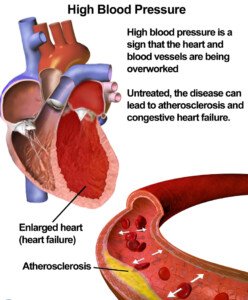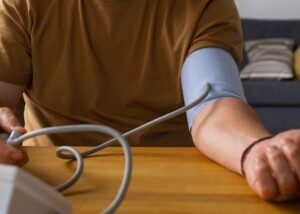If you had to choose between napping or medications for lowering your high blood pressure, do you know which would be more effective?
Hopefully, you know that napping and pharmaceuticals such as beta blockers aren’t your only options.
But pitting napping against hypertension drugs is an interesting topic, since many people with high blood pressure will employ only these options (rather than a change in diet, a weight loss plan and a commitment to exercise).
Napping and Lowering Blood Pressure
“Napping may lower blood pressure while you nap, but put back in a normal stressful environment (if you have high blood pressure) and it will rise again,” says Susan L. Besser, MD, with Mercy Medical Center, Baltimore; Diplomate, American Board of Obesity Medicine and board certified by the American Board of Family Medicine.
“If you don’t believe me, here’s an experiment. Take your blood pressure in the midst of a busy day.
“Then sit still for a few minutes, deep breathe and imagine something calming.
“Check your blood pressure again. It’s lower, right? Now … get back to business – up goes your pressure again.”
In other words, a nap will transiently lower your blood pressure.
If you’ve been diagnosed with hypertension, you need to get it lowered permanently (save for episodic incidents that raise it such as anger and physical exertion).

You should have normal blood pressure all the time, not just when you nap. Napping does not cause changes in your cardiovascular system that lead to a permanent lowering of your blood pressure.
Petting a dog will lower blood pressure, too. But, like napping, you can’t be petting your dog every single minute of your waking day.
Drugs and Lowering Blood Pressure
Beta blockers and calcium channel blockers are two classes of drugs that are frequently prescribed for hypertension. And they usually work well.
For people who hate taking naps, drugs are an appealing option. But they don’t create an inherently efficient cardiovascular system in the way that improved diet, weight loss and exercise do.
Furthermore, pharmaceuticals come with the potential for many side effects, such as constipation and coughing.
Diet, Weight Loss and Exercise
In addition to a low salt diet with minimal processed foods and plenty of fresh fruits and vegetables, an exercise program and weight loss if needed, quitting smoking will also help lower your blood pressure.

Shutterstock/ Bogdan Vija
Healthy lifestyle habits will help lower your blood pressure permanently (unless you revert back to bad habits).
When a healthy person’s blood pressure rises due to emotional stress or physical exertion, this is normal.
 Dr. Besser provides comprehensive family care, treating common and acute primary conditions like diabetes and hypertension. Her ongoing approach allows her the opportunity to provide accurate and critical diagnoses of more complex conditions and disorders.
Dr. Besser provides comprehensive family care, treating common and acute primary conditions like diabetes and hypertension. Her ongoing approach allows her the opportunity to provide accurate and critical diagnoses of more complex conditions and disorders.
 Lorra Garrick has been covering medical, fitness and cybersecurity topics for many years, having written thousands of articles for print magazines and websites, including as a ghostwriter. She’s also a former ACE-certified personal trainer.
Lorra Garrick has been covering medical, fitness and cybersecurity topics for many years, having written thousands of articles for print magazines and websites, including as a ghostwriter. She’s also a former ACE-certified personal trainer.









































